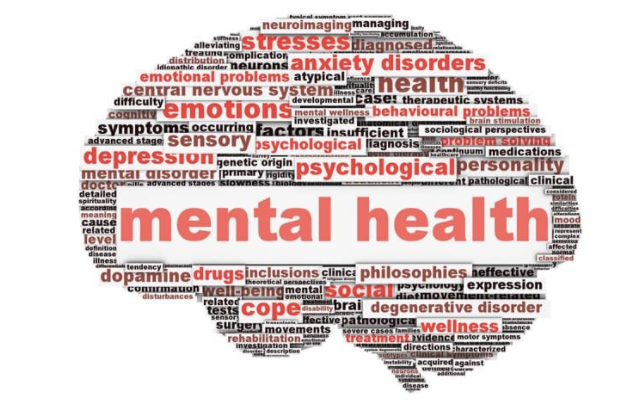Leadership team focused on improving gaps in local mental health resources
By Jackie Wood
Approximately 2 million people with mental illness are incarcerated each year across the country, often because they did not receive the treatment they needed. Only 4 in 10 people with a mental health condition in Missouri have received treatment in the past year. And more than 1.9 million people in the state live in an area with a shortage of mental health professionals.
To help fill gaps in available local mental health resources, the Fourth Judicial Circuit Mental Health and Criminal Justice Leadership Team was assembled in late 2020 with Associate Judge Robert Rice serving as as chair and members made up of health, law enforcement and judicial organizations. The team created a two-phase approach to address those concerns in the Fourth Circuit, which includes Nodaway, Atchison, Gentry, Holt and Worth counties.
Gaps identified
Gaps identified by the management team included:
1. Crisis Intervention Consulting Services: Only one advisor was available to law enforcement during the day, covering an area of nine counties, and no nighttime law enforcement coverage. This means officers serve as first responders to people in crisis without the necessary tools and training.
2. Crisis intervention training: CIT training helps officers correctly identify a possible mental health crisis early and respond with the appropriate resources. With proper training and 24/7 access to a counsellor, officers could divert a person in crisis to services instead of criminal arrest and detention.
3. Waiting list for alternative programs: Due to a lack of funds for Drug Court and DWI Court, there has been a waiting list for qualified individuals for the programs. Both were successful and reduced recidivism.
4. Transportation: Often the clients most in need of mental health services do not have money for fuel or transportation to get to services, as most are located in St. Joseph or Kansas City.
5. Urgent lack of local resources: there has been an alarming need for mental health resources and services to deal with crises in local communities as well as how the mental health crisis is affecting local first responders.
Stage 1
After identifying the gaps, the management team set to work to resolve the issues by developing a two-step plan.
The organization received a $50,000 grant from the Reinvestment in Justice Initiative in January 2021, which was primarily used in the first phase.
Sixty percent of the grant, or $30,000, was used for additional access to crisis intervention services and a Fourth Circuit mental health counselor for six months. These funds set up a 24/7 crisis hotline and a mental health counselor to help law enforcement.
Twenty-four percent of the grant, or $12,000, was used to supplement alternative court programs for treatment costs that help eliminate the waiting list.
Eight percent of the grant, or $4,000, was used for fuel vouchers and transportation assistance for customers who live outside of the county where the services are located.
Eight percent of the grant, or $4,000, was used in attorney fees to create legal documents for the implementation of phase two, which is to create a self-contained, comprehensive, community-based mental health program.
Stage 2
The results of phase 1 were presented to county commissioners in the region on October 20, along with a proposal for phase 2.
If all five counties are on board, this part of the project would include the creation of an 11-member board of directors, with each county having representation based on population. The council would then decide how to raise funds and how they would be spent, including continuing the progress made in Phase 1.
So far, the county commissioners of Nodaway, Gentry, Holt and Worth have agreed to move forward.
The Cooperative Vision complements current resources with additional innovative community approaches to improve first encounter outcomes with law enforcement. When the criminal justice system needs to respond, the program would provide ongoing and sustainable funding for alternative treatment programs instead of incarceration.
The program hopes that through access to crisis intervention services and education, it can help provide people with mental illness with appropriate treatment and help them on the road to recovery.


Comments are closed.